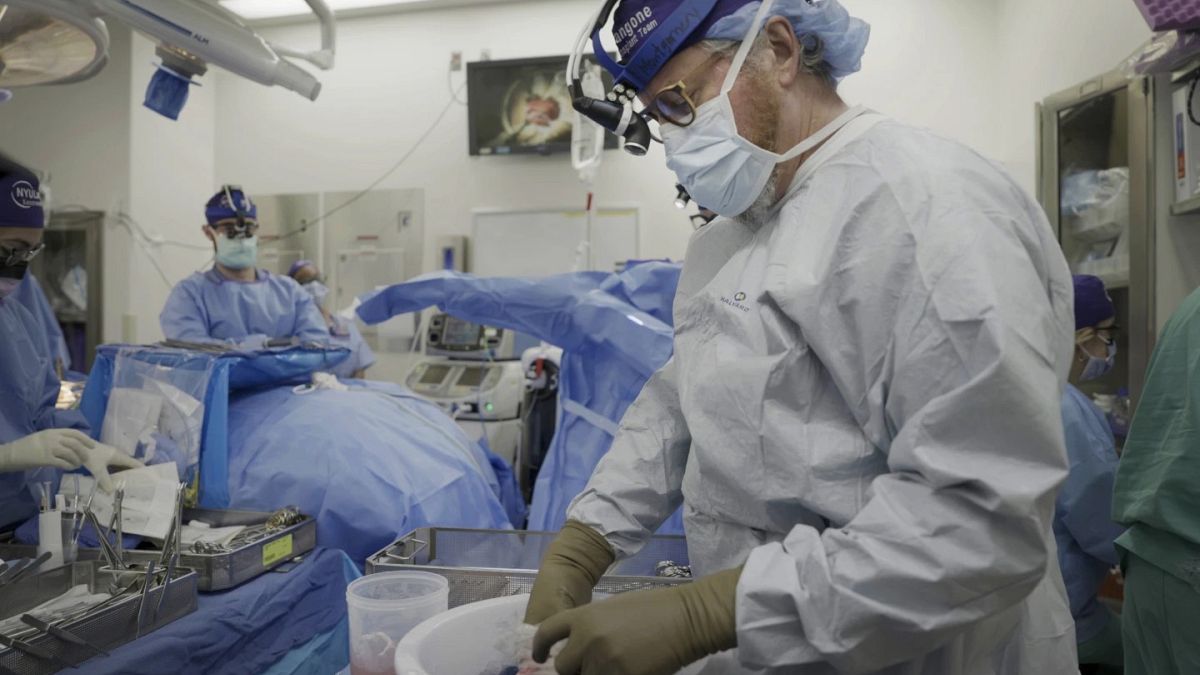Hungary, currently holding the presidency of the Council of the EU, is pushing for the bloc to "overcome the barriers that currently prevent the full potential of organ transplantation from being realised in the EU" through a controversial proposal.
Europe is currently facing a shortage of organs, leading to increasingly long waiting lists for transplants.
As well as improving the quality of life of their recipients, transplants also help save money for public health systems.
For example, a kidney transplant recipient costs Spain €30,000 less per year than a patient on dialysis, according to the Spanish National Transplant Organisation.
The Hungarian presidency of the Council of the EU has now introduced a new proposal aimed at increasing "organ availability, enhancing efficiency and accessibility in transplant systems, and improving quality and safety standards," according to Dr. Péter Takács, Hungary's state secretary for health.
Between 2009 and 2015, the European Union implemented a plan for organ donation and transplantation which resulted in a 21% increase in donations across Europe.
"With the European Union at a crossroads, the imperative for a renewed and vigorous approach to organ donation and transplantation has never been clearer," Takács believes.
'Boosting organ exchanges between countries'
One proposed idea is to increase exchanges between member states.
"One way to do this would be to cross borders and try to communicate and organise relationships with other countries that allow organ exchange, a fast track to transplantation and organ procurement," says Dimitri Mikhalski, vice-president of the Belgian Transplantation Society. But he also calls for the rapid transport of organs to be encouraged as "this could reduce their quality".
Within the EU, there are already organisations that coordinate organ shipping. For instance, Eurotransplant connects the needs of Germany, Austria, Belgium, Croatia, Slovenia, Hungary, Luxembourg, and the Netherlands, linking all transplant and organ donation hospitals in these countries. This coordination could, however, be expanded to include the entire EU.
'Marginal donors': Lower standards for organs
Donor rates vary significantly among EU member states. They range from the highest annual rate of 47 per million inhabitants in Spain and 31.5 in Portugal to the lowest rates of 2.1 in Bulgaria and 3.3 in Cyprus.
To qualify as a donor, the deceased must meet several criteria, which often makes it challenging to achieve high donation rates.
In an ideal situation, the donor should be a young person who has died from brain death and has not been affected by high-risk infectious diseases, such as those who have been involved in road traffic accidents.
This is why one of the proposed measures, which involves using 'marginal donors' —those who are older or have organs in less optimal condition — is controversial. Mikhalski argues that this approach could be a temporary solution to reduce waiting lists and address the organ shortage.
The 'opt-out' system
Additionally, another Hungarian proposal suggests that countries, such as Germany, amend their legislation to adopt an 'opt-out' system, where all citizens are considered donors unless they explicitly choose otherwise.
A total of 18 EU countries already have legislation that classifies all citizens as potential donors: Austria, Belgium, Croatia, Czech Republic, Estonia, Finland, France, Greece, Hungary, Italy, Latvia, Luxembourg, Netherlands, Poland, Portugal, Slovakia, Slovenia, and Spain.
In recent years, several countries have updated their laws on organ donation, including the Netherlands in 2020 and Greece in 2013.












